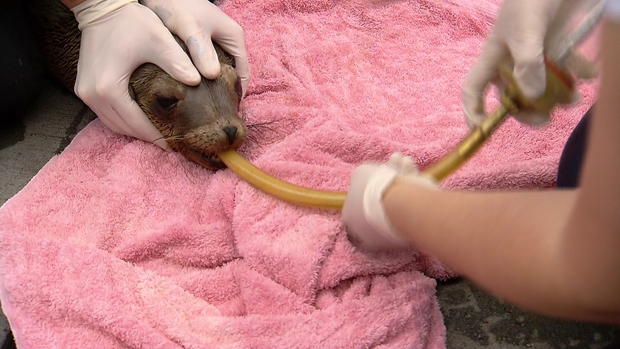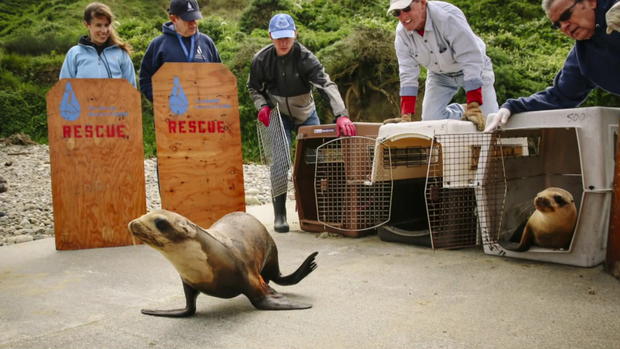How veterinarians are saving Southern California's starving sea lion pups
SAUSALITO, Calif. -- Beaches on the Channel Islands off Southern California are crowded with female sea lions and their pups born last summer. But in the ocean where the mothers hunt for food, fish are hard to find. Sea lion pups are starving.
They are showing up thin and hungry, stranded on beaches all along the coast at a rate some 20 times greater than in a normal year.
At the Marine Mammal Center in Sausalito about 200 pups are being nursed back to health.
"They come into us about 20 pounds, some of them a little bit less, some of them more," said Dr. Claire Simeone, a veterinarian. "They should be closer to 60 or 70 pounds."
The pups arrive often suffering from pneumonia, parasites and infections. They're so weak they have to be fed through tubes.
"We're feeding them as quickly as we can, but some animals don't make it," said. Dr. Simeone. "We've seen about a 60 percent success rate so far."
Scientists believe unusually warm water in the Pacific has driven away the fish sea lions usually eat. The water off the California coast has reached record high temperatures, according to Dr. Shawn Johnson, the director of veterinary science at the Marine Mammal Center.
"The sardines and anchovies, the main fish for the sea lions around Southern California, they move to deeper waters farther out in the ocean, farther north," said Dr. Johnson.
At the Marine Mammal Center they're going through about a thousand pounds of fish a day. Once the young sea lions are well enough to eat normally they're almost ready to be returned to the wild. They are released into colder waters in northern California where fish should be easier to find.


